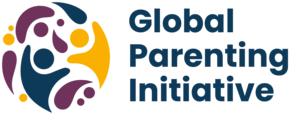Preparations for phase two of SWIFT study implementation, a Randomised Encouragement Trial (RET), continue to advance well. Following consultation with the provincial Department of Social Development, one of the implementation locations for the RET will be changed from Mitchell’s Plain to Ceres to facilitate access to planned referral pathways. A protocol for a pilot study, to be conducted in Wolseley (Ceres) is also under development, pending the inclusion of data analysis processes and technical components of the chatbot design and delivery. The team aims to finalise the protocol and associated ethics documentation to be submitted to the University of Cape Town by the end of August. The team have also confirmed the following stakeholders for the study’s Trial Steering Committee (TSC): the Director of the Violence Prevention Unit, the Director of Childline Western Cape, and an experienced statistician and TSC member in the field of parenting and violence prevention.
With regards to innovation progress, All ParentText content has been translated, proofread and finalised by implementation partner Clowns Without Borders South Africa (CWBSA). To enable the programme to be viewed in isiXhosa and Afrikaans, CWBSA has translated video scripts in both languages. The SWIFT team and CWBSA also confirmed actors for isiXhosa videos (to be recorded by LifeBrand from mid August) and developed a guideline document to provide actors with a background to PLH, the ParentText programme, and the goals of each daily lesson. Following training with PLH on 13 August, Cindee Bruyns (Co-Investigator) and Carly Katzef (Research Assistant) will generate the AI Afrikaans videos using Synthesia.
Over July and August, the SWIFT team participated in several stakeholder engagements. The team met with the South African Parenting Programme Implementers Network (SAPPIN) to discuss the potential inclusion of the digital parenting programme, ParentLine within SWIFT for parents/caregivers under the age of 18 years, or those with children under the age of two years. A meeting was also held in conjunction with SAPPIN to discuss South Africa’s input to the upcoming Global Ministerial Conference in November. In addition, the team met with Childline, a referral partner who works closely with NGOs across South Africa to provide support to children and families. The Director of the Western Cape expressed enthusiasm for the SWIFT study and a willingness to join the study TSC.
GPI Future Leaders Cindee and Carly continue to engage in various capacity building activities. In collaboration with the GPI Programme team (Peter Burr and Lydia Holland), GPI Capacity Building Officer (Nondumiso Mginywa) and Kahabi Isangula (Study Coordinator, ParentApp for Teens), Cindee hosted and Carly co-facilitated a GPI Future Leaders Fieldwork Safety and Wellbeing workshop on 30 July. Cindee also presented a half-day NVivo training workshop for Honours in Social Work students at the University of Cape Town, with Carly assisting in the computer lab with students’ queries and challenges. In addition, Carly plans to complete a Good Clinical Practice certification prior to the submission of Phase two ethics applications.




